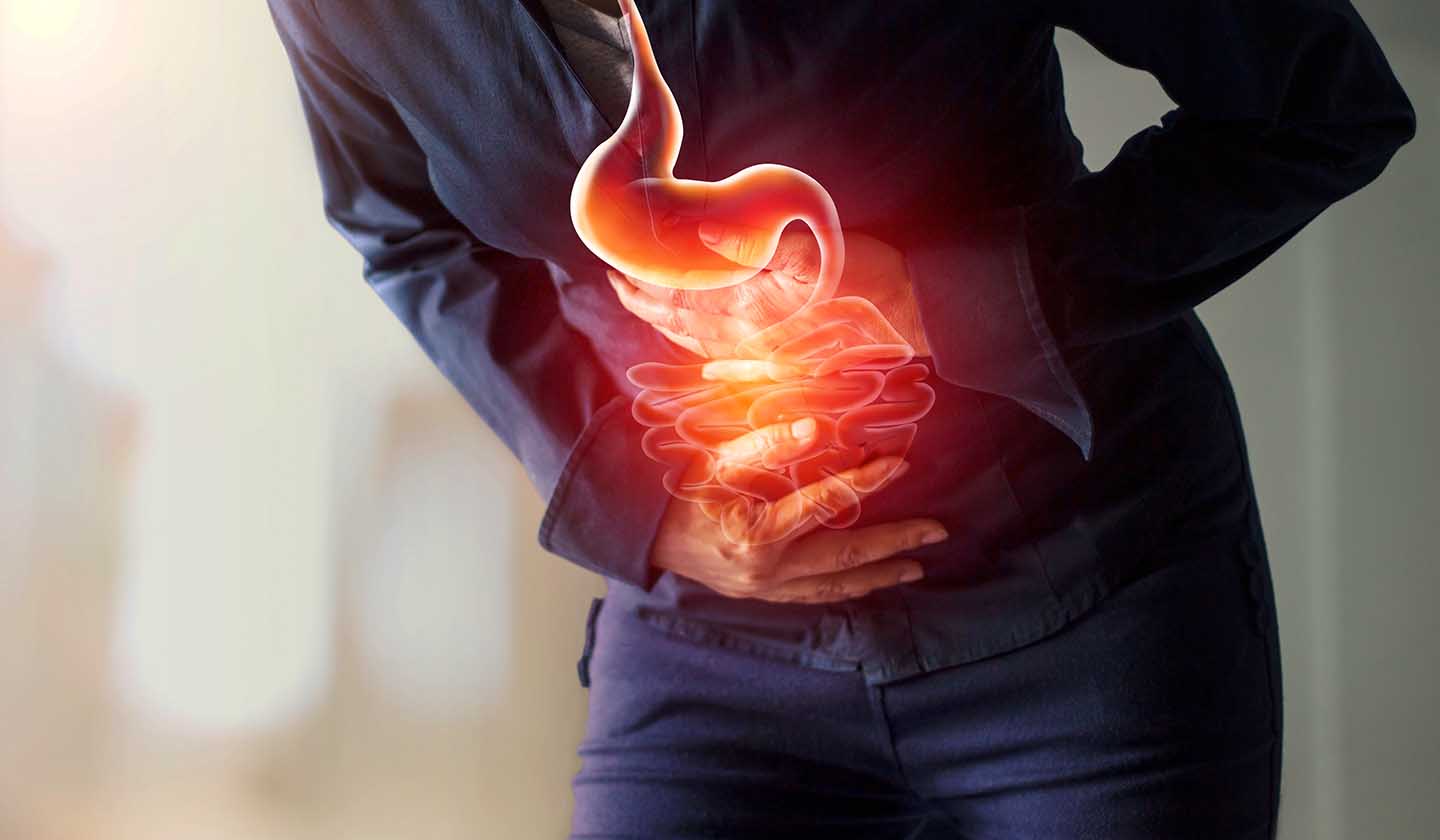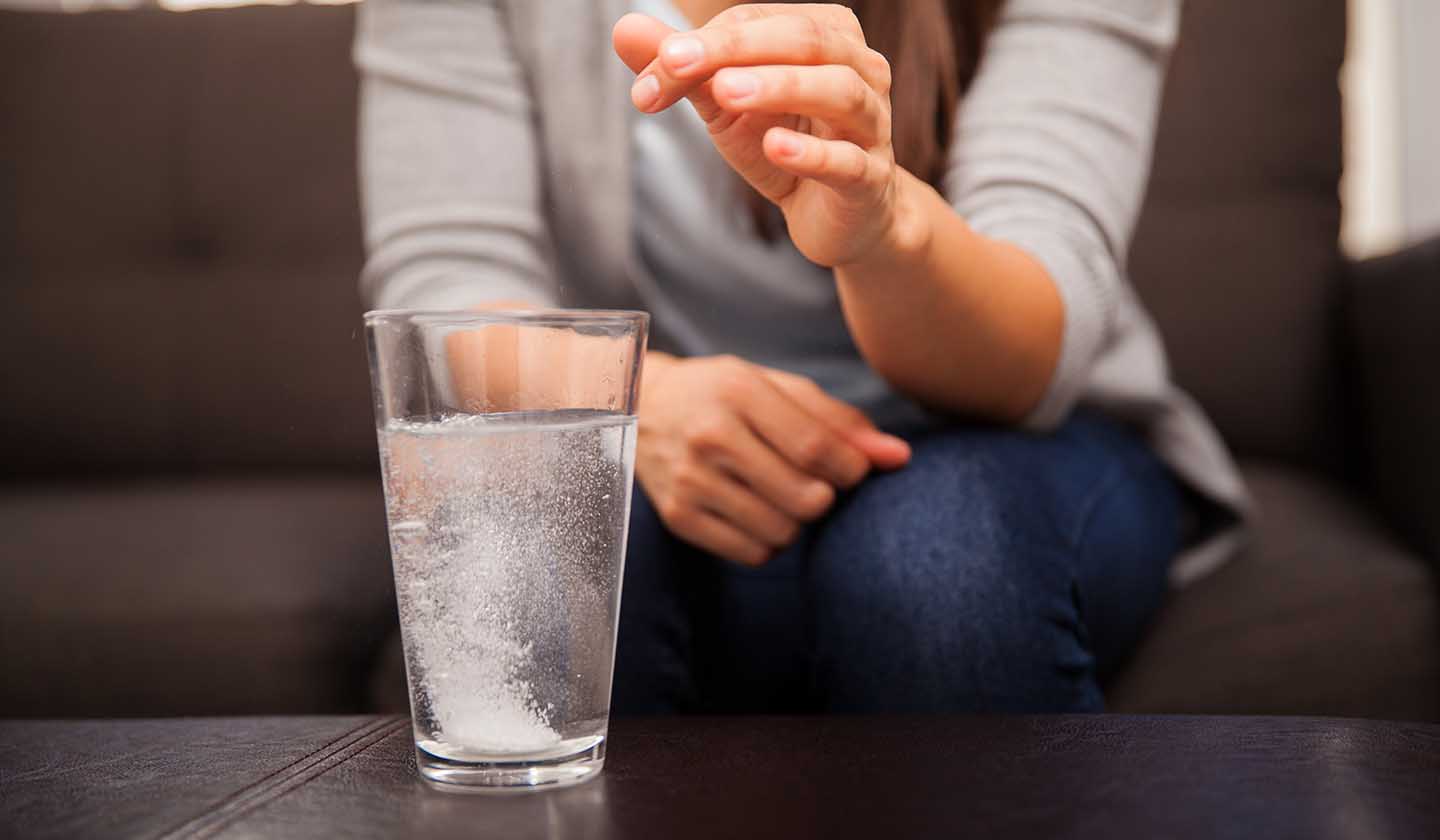Digestive system
Indigestion - Looks like I'm going to burst

Dyspepsia is the word used to describe the sensation of pain and burning in the stomach, which we commonly call poor digestion.
However, dyspepsia may be associated with other pathologies and not simply with indigestion.
There are 2 types of dyspepsia - functional dyspepsia, which is the most common, where there is no associated disease, and organic dyspepsia, which is related to the existence of some pathology.
Everybody can sporadically suffer from poor digestion, but when these episodes are recurrent, we may be dealing with functional dyspepsia.
What can cause organic dyspepsia
- Gastric and duodenal ulcers
- Gastritis
- Constipation
- Gastric cancer
- Helicobacter pylori infection

What can cause non-ulcer functional dyspepsia
- Bad eating habits
- Ingestion of heavy meals
- Ingestion of large amounts of food
- Eating too fast
- Intake of alcoholic and carbonated drinks
- Anxiety and depression
- Medicines - anti-inflammatories and antibiotics
- Helicobacter pylori infection
Helicobacter pylori bacterium is a species that colonises the lining of our stomach, sometimes living there without causing any problems to our body. However, this bacterium can become more aggressive, being responsible for the appearance of ulcers, gastritis and even stomach cancer.
Dyspepsia symptoms
- Stomach discomfort or pain
- Feeling of a full stomach
- Nausea
- Eructation (belching)
- Flatulence

Tips to prevent indigestion
- Eat slowly - chew your food well to enable the action of salivary juice and facilitate digestion in the stomach.
- Do not eat a large amount at once, split your meals throughout the day.
- Avoid foods that can cause indigestion - fat meats, spicy and saucy foods, sausages, fried foods.
- After the meal, avoid lying down or sitting - a short walk is recommended.
- Take medicines to aid digestion.
Treatment
Although dyspepsia is not a serious disease it can affect the patient’s quality of life. However, it is easily treatable. Seeking advice is always the best solution.
Antacids
Taking antacids after a meal helps to temporarily relieve the burning sensation. Antacids will help to neutralize the acid in the stomach.
Antacids exist in the form of sucking tablets or effervescent tablets or powders to be diluted in water.
Proton pump inhibitors
For more lasting relief, the so-called proton pump inhibitors, better known as “stomach protectors”, which reduce the acidity of the stomach, can be taken.
If dyspepsia is caused by H. pylori bacteria, antibiotics are required.
Sources
iSaúde
Farmácia Distribuição Magazine
Também lhe poderá interessar
Mouth and teeth
Only those who have had canker sores know how uncomfortable they can be
Infections






